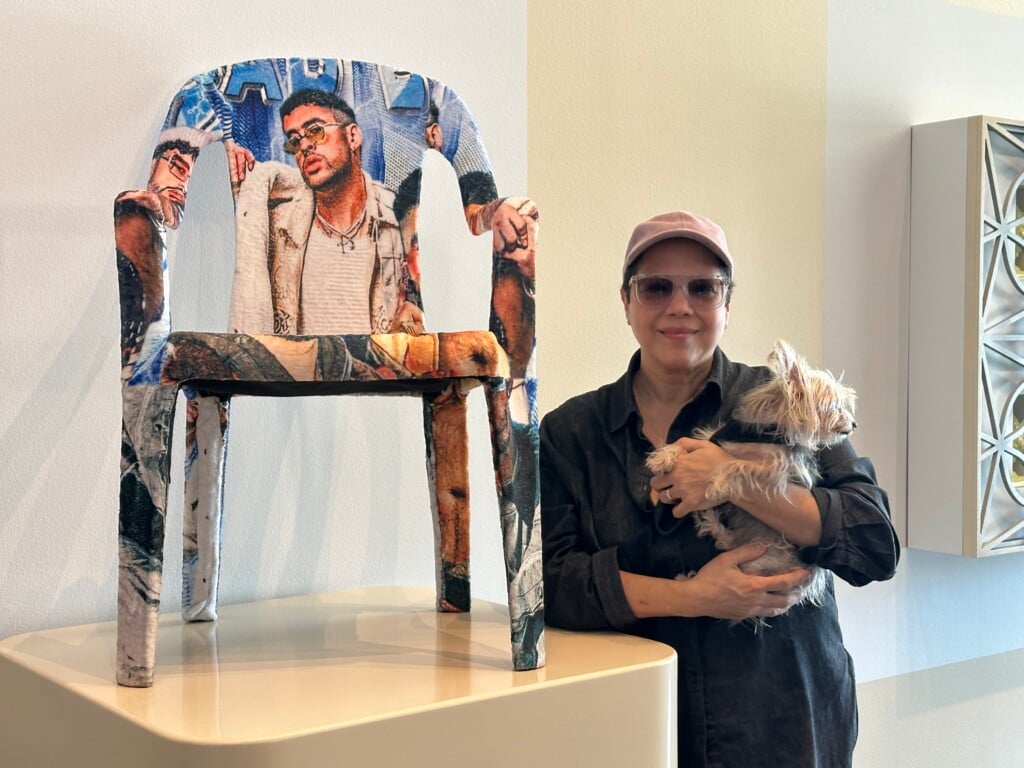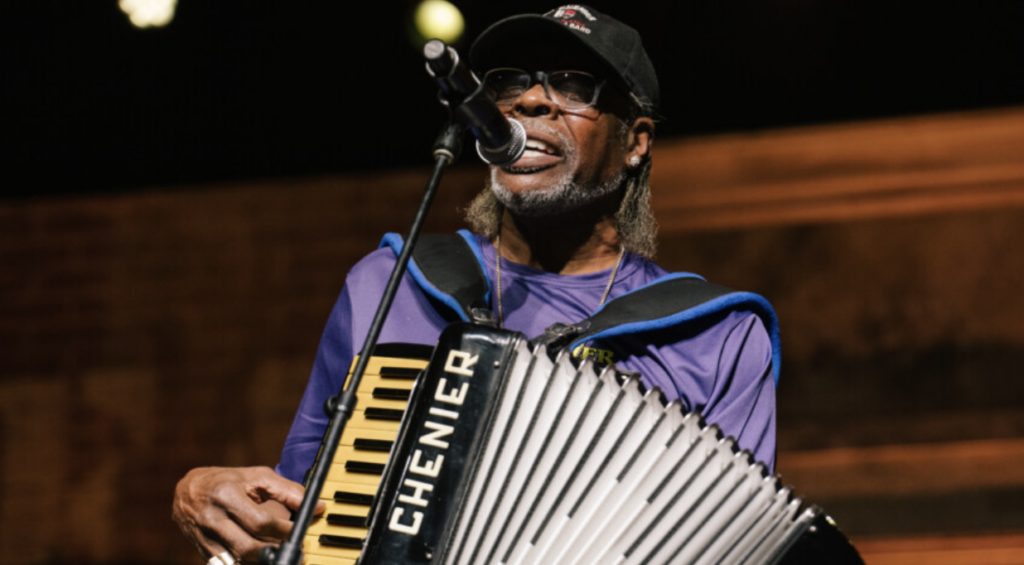Straight Talk

This country — especially its heartland — needs Rufus Wainwright. He’s sexy, bold, glamorous, a genius of a songwriter and openly gay. He’s the kid in high school sauntering rakishly down the hall with Elvis sideburns and a fashion sense so good he gives even the most thick-necked jocks inferiority complexes — and he’s a consummate pop musician who has released four fully realized albums to widespread acclaim. Adding to his cred is his insanely talented family; his dad, Loudon Wainwright III, and mother, Kate McGarrigle, are folk-music icons, and his sister, Martha Wainwright, is an up-and-coming indie rocker.
At only 30, Wainwright is already too good an artist to become a gay icon — after all, when was the last time you saw a picture of Tchaikovsky on a gay-rally poster? And he’s definitely not the hero of his song “Gay Messiah,” who will then be reborn/From 1970s porn/Wearing tube socks with style/And such an innocent smile — he just sings about him like a queer John the Baptist. Rufus brings his message to the flyover states on his second Odd Men Out tour with Ben Folds and Ben Lee. We caught up with the ever-good-humored singer and pianist at his New York City home before he hit the road.
JH: So you’re going on tour with a couple of guys who have both posed for photo shoots in plain white T-shirts that probably came out of a package. Are you gonna give these guys some help?
RW: I think that, if anything, all of us performing together will somehow create some sort of spectrum of subtlety and over-the-topness, and perhaps my shirt or pair of pants will be the peak of that at a certain moment. I have to say honestly that I love the whole gay-straight aspect of this tour. I was saying to someone earlier how last year when we did this, it was a very successful run, while a lot of other big tours like Lollapalooza and some others were really losing some money. And I think that the fact that this was a gay-straight venture was why this was so successful. It brought the white shirts [together] with the no shirts.
Will this be your first trip into the so-called red states since Bush’s re-election?
Yeah, I guess since the re-election — I don’t know, I live in New York, so it’s kind of hard to gauge what’s going on because we kind of fortify each other over here … I do think actually that even in red states, it’s probably more necessary than ever for someone like me to get out there and connect with the downtrodden. I’m excited to get out there. I love America.
Judging by your songs and your last album cover [which featured Wainwright posing as the Lady of Shallot], you’re not afraid of letting it hang out. Do you sometimes worry that people will totally object to it?
Have you ever seen that show Elimidate? I don’t know, I think I’m about fourth in line after that, hopefully. I think I’m kind of under the radar, because in general there’s so much crud out there. I would say that homosexuality and gay marriage is such a major issue right now, without us really wanting it to be. And that is a bit odd.
You’ve said that you like to imagine that you’re singing to Verdi and your other favorite dead composers. Do you think they’d buy your records?
First of all, they’d receive them for free from my publicist, right away, so I’d never make them buy them. I think they’d enjoy them. I think they’d see what I’m trying to do. I mean, Wagner would probably laugh in my face — aside from him, they’d probably enjoy it.
Why him?
Wagner loved Wagner. Wagner loved Wagner loved Wagner.
There’s been some talk about how the term “classically trained” may be overused in describing musicians, from Emerson, Lake & Palmer to Alicia Keys. To you, what does it mean to be classically trained?
I was actually classically trained — I was badly classically trained. I never ever practiced piano. I can still hardly read music. I actually failed out of music school when I went to a conservatory. Saying that, though, I very much appreciate and cherish my experiences in that world. I mean, even if you’re not particularly good at the music, to still be around some of those dedicated musicians and some of those great works of art, it has an impact. Even just to be around classical music, even if you’re not being trained in it, is very important for the mind.
If the Beatles had had that experience, do you think their music would have been even better?
I think that in a lot of ways, the Beatles, like my mother, being from the same generation, practically — in that generation you kind of knew your music in general. You have to remember that back then, on The Ed Sullivan Show you would have, like, an opera singer, followed by a comedian, followed by Sammy Davis Jr. or whatever, so it was more of a mixed bag in terms of music in general. So whether it’s classical music or folk music or anything, it’s all about variety, and that’s what makes you more educated.
Do you think that’s missing today?
Oh, we’re in the sort of driest, uh, vagina (laughs) ever.
Does it make you work harder?
It makes me feel more needed and more appreciated when I get out to those red states and stuff.
Who do you want to reach the most on tours and with your albums?
I have to say honestly that initially — and it still is true today — I really loved the fact that my first fans were teenage girls and that I was sort of their lapsed David Cassidy. I really believe that of all the groupings of people really under threat, teenage girls really don’t have it very easy right now, whether it’s what the government’s going to do with women’s rights or what MTV does with body image and stuff. And also, I’m very dedicated to them for keeping the flame burning and really supporting me for a long time. So I think they’re still sort of my number one fanbase, especially in America.
Were you thinking of them when you wrote “The Art Teacher”?
Yeah, “The Art Teacher,” I definitely was thinking of them. I’ve said this before, but there is a strong link between a 30-year-old gay man’s heart and a 14-year-old girl’s heart.
Is your main theme as a songwriter still hope?
I hope (laughs). I really believe that songs write themselves and that our job as artists is to really just sort of dust off what’s already there. And what I seem to go for is that which has some silver lining. I believe that when you listen to the works of Jeff Buckley or Elliott Smith or Kurt Cobain, you can actually hear their demise within the music — I do, anyway, and that’s an aspect that’s fascinating about their work. Thank God I don’t have that element. I’m all about wanting to live in the end, though I can get pretty dark as well.
So someday you might end up in a retirement home, ideally.
Well, there’s a great retirement home that Giuseppe Verdi built in Italy for retired chorus members and opera-orchestra players. There’s an amazing documentary on it, but apparently what happens is when all the chorus members end up there, they become like the divas and main singers of the operas, and they sing them all in the hallways. So maybe I’ll end up there.
It’s probably better in New York, but the music in gay clubs here is either bubblegum-dance or cabaret. Do you think there’s a gay tradition in music that’s maybe not so good, and if there is, how does it affect you?
I think that I’m definitely needed in the gay-music world. I think that’s always been a very tricky question. Gays have never necessarily been — they’re either totally ruled by music and obsessed with it or it doesn’t mean anything to them. It’s either all or nothing a lot of time in the gay world. So I’m just giving them my all.




